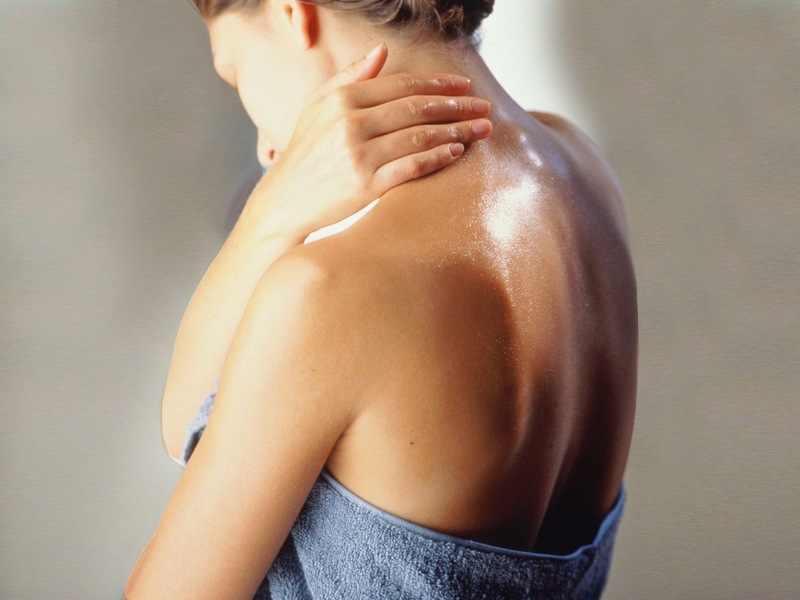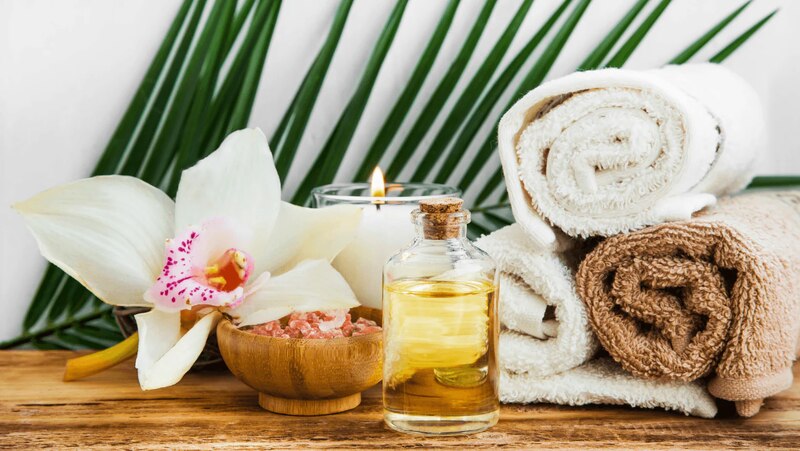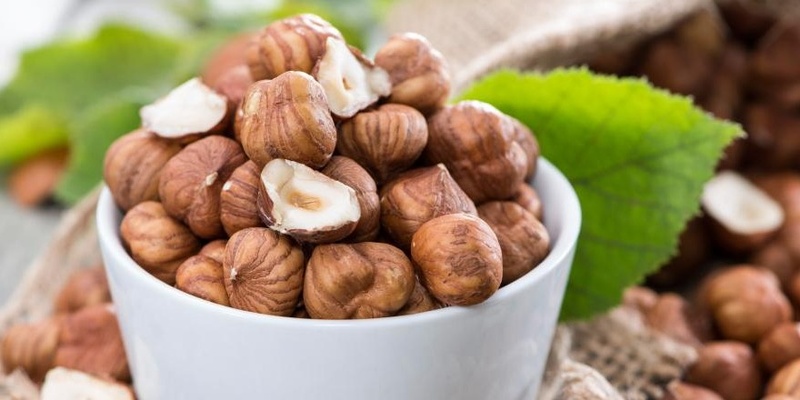The Science Behind Post-Shower Body Oil Application
Jun 15, 2024 By Nancy Miller
Following a shower, the skin is ready for hydration as the warm water has opened up its pores and eliminated impurities. During this time, the moisture barrier of your skin becomes more permeable making it easier to absorb hydration and nourishment. Now, you can apply body oil after the shower. Knowing the science and best methods, you can use body oil to its fullest for your skin's benefit. When body oil is applied correctly - from sealing in moisture to replenishing vital nutrients. It can make a big difference in enhancing how well your skin feels after use: softer, smoother, and youthful.
Benefits of Post-Shower Body Oil Application
Using body oil after taking a shower is very good for the health of our skin. It helps to keep moisture inside, stops dehydration, and gives us a gentle and flexible texture on our skin. Also, the oils for the body can renew the lipid barrier of the skin which makes it better at keeping moisture in during day time.

You can observe a swift change in the moisture level on your skin after putting in body oil following a shower. The oil makes a guard around it, locking the moisture inside and stopping water from evaporating off quickly. This way, your skin stays hydrated for more extended periods. The barrier function also assists in protecting the skin against outside pressures like severe weather and dirt in an environment which helps keep its healthiness and liveliness intact.
- Consideration: Opt for lighter oils, such as grapeseed or sunflower oil, if you have oily or acne-prone skin. These oils are less likely to clog pores and cause breakouts, ensuring that your skin remains clear and blemish-free.
- Caution: Avoid applying body oil to areas of broken or irritated skin, as it may exacerbate inflammation and discomfort. Instead, focus on healthy, intact areas to promote healing and soothe any irritation effectively.
Choosing the Right Body Oil
The choice of body oil is very important to get the results you want. Use natural oils like jojoba, almond, or coconut oil because they have high levels of essential fatty acids and nutrients. Don't choose products that are based on mineral oil because they might block your skin's pores and not give you as much moisture as others could offer.
Think about your skin's special requirements when selecting a body oil. If you have delicate skin that gets easily irritated, choose oils without any fragrance or ones labeled as hypoallergenic to decrease the possibility of negative responses. Also, search for oils filled with vitamins and antioxidants like vitamin E or rosehip oil that can give added nourishment and protection to your skin.
- Fact: Some body oils contain added ingredients like essential oils or botanical extracts, which can provide additional benefits such as aromatherapy or skin-soothing properties.
- Noteworthy: Always perform a patch test before using a new body oil, especially if you have sensitive skin or allergies. Apply a small amount to a discreet area of the skin and wait 24 hours to check for any adverse reactions before using it more extensively.
Post-Shower Application Technique
For body oil to be applied well, it is all about the way you do it. Once you finish showering, gently dry your skin with a towel but keep it a little wet. Take a bit of oil in your hands and softly rub it onto the skin using round movements. Pay special attention to parts that often become dry like the elbows, knees, and heels. Make sure it is applied evenly.
As you massage the body oil onto your skin, apply soft pressure and make smooth upward movements. This will aid in improving circulation and drain lymphatic fluids. The outcome is twofold: the oil gets absorbed well into your skin while you also feel relaxed and refreshed. Spend enough time to massage every part of your body, giving special care to any place where there is tightness or hardness for a complete luxury treat.
- Reminder: Avoid using too much body oil at once, as it can leave your skin feeling greasy and may take longer to absorb. Start with a small amount and add more as needed, focusing on covering the entire body evenly for maximum hydration.
- Tip: For an added touch of luxury, warm the body oil between your hands before applying it to your skin. This helps to increase its spreadability and enhances the sensory experience, leaving you feeling pampered and indulged.
Timing Matters
The time you select for putting on body oil after taking a shower matters greatly. It is recommended to apply the oil when your skin is somewhat wet because this assists in trapping moisture and improves absorption. If you wait too long after showering, the effect might be lessened as the skin starts to lose its moistness.
Preferably, put on body oil after three minutes of your shower. Your skin is still enhanced in absorbing power and putting the oil on at this point lets it deeply penetrate the epidermis layer for maximum benefits. When you apply it correctly, you can trap moisture and maintain softness and hydration in your skin all day long.
- Fact: Applying body oil to damp skin helps to trap moisture between the oil and the skin's surface, creating a barrier that prevents water loss and maintains hydration levels.
- Consideration: If you prefer to air dry after showering, mist your skin with a hydrating facial mist or thermal water before applying body oil. This helps to replenish moisture lost during the drying process and prepares the skin for optimal oil absorption.
Frequency of Application
How often to apply body oil varies based on personal choice and the needs of your skin. For many individuals, putting on body oil once per day after they take a shower works well for keeping their skin hydrated (preferably at night). But if you have dehydrated skin, it could be helpful to put some oil on twice daily - in the morning and just before sleeping.
Change how often you apply body oil depending on the weather, your lifestyle, or the condition of your skin. If it is colder months or in a dry climate, there could be more need for frequent application to fight against loss of moisture and avoid dryness in the skin. On the other hand, if you are living in a hot and damp environment then applying oil less regularly might help with preventing too much oiliness as well as discomfort caused by it.
- Reminder: Listen to your skin's needs and adjust your body oil application frequency accordingly. If you notice any signs of dryness, tightness, or irritation, consider increasing the frequency of oil application to provide additional hydration and nourishment.
- Noteworthy: Applying body oil before bedtime can have added benefits beyond hydration. The gentle massage motion can promote relaxation and improve sleep quality, while the nourishing oils work to repair and rejuvenate the skin overnight.
Additional Tips for Optimal Results

Also, to get more advantages from using body oil after taking a shower, try these suggestions: Test out various oils until you discover the type that matches your skin the most. Add soft scrubbing into your skincare steps to eliminate dead cells of the skin and improve how well oil is taken up by your body. Do not put body oil on the skin that is broken or irritated, it might make you feel uncomfortable or sting. Keep your body oil in a cool place away from light to avoid it turning bad and losing its quality.
When you try other oils, think about mixing them for a custom blend that suits what your skin needs. For instance, mixing light oils such as jojoba or grapeseed with heavy ones like avocado or shea butter can offer an equilibrium of moisture and nutrients for those having dry to mature skin types.
- Consideration: If you're using body oil as part of a massage routine, warm the oil in your hands before applying it to the skin. This helps to relax the muscles and enhance the overall massage experience, leaving you feeling pampered and rejuvenated.
- Caution: Be mindful of the expiry date of your body oil, especially if it contains natural ingredients or essential oils. Using expired oil can lead to rancidity and may cause skin irritation or allergic reactions. Always check the product label for expiration dates and discard any expired oil promptly.
Conclusion
To sum up, using body oil after taking a shower is a very good method for giving food to and moisturizing the skin. By doing it correctly and picking the appropriate oil for your type of skin, you can experience its many advantages and get a glowing, healthy complexion.







